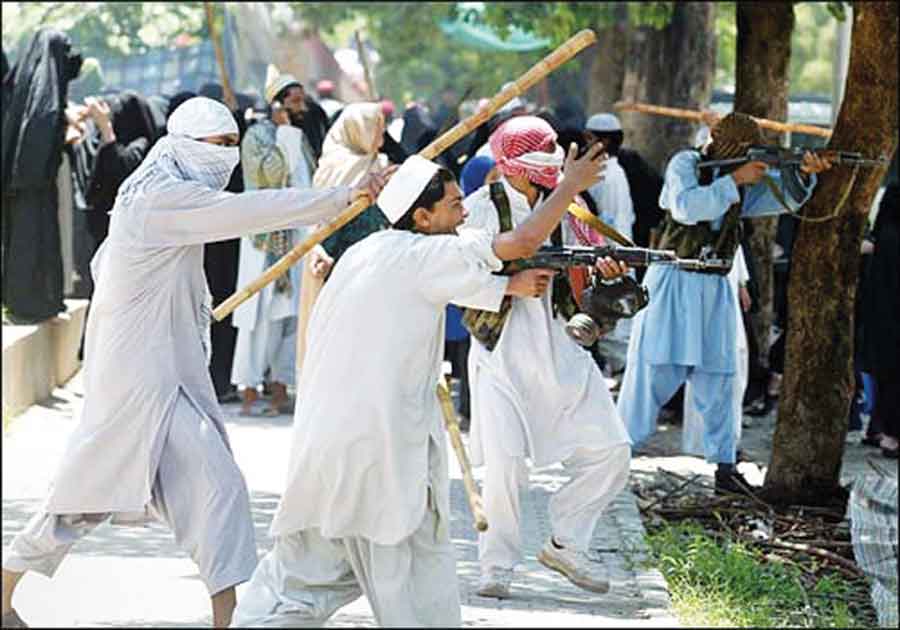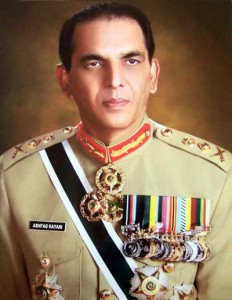Media reports emanating from Pakistan’s civilian Government as well as from the General Headquarters (GHQ) of the Army speak of an on-going review of Pakistan’s military doctrine in order to give priority to the creation of a sub-conventional warfare capability to fight domestically against non-State actors posing a threat to Pakistan’s internal security.
The Pakistan Army is not about to give up its use of jihadi terrorism as a strategic weapon against India and its further strengthening of its nuclear and missile capability against India with Chinese assistance. We must avoid any naïve assessment of the reports from Pakistan on this subject.
While these non-State actors have not been specifically named, it is apparent they have in mind the Tehrik-e-Taliban Pakistan (TTP), the anti-Shia Lashkar-e-Jhangvi (LEJ) and the Baloch nationalist elements which are waging a struggle for Baloch independence.
The Pakistan Army has not been able to prevail over any of these organisations. The TTP has maintained a capability for fighting against the Pakistani security forces in the tribal as well as non-tribal areas and there have been indications of its extending its activities to Karachi, thereby adding to the instability there.
The LEJ continues to indulge in large-scale massacre of Shias all over Pakistan—- and particularly in Balochistan, Gilgit-Baltistan, the Kurram Agency and Karachi. The freedom struggle of the Baloch nationalists continues to gather momentum.
In the past, Pakistan’s military doctrine had three components:
- A Chinese-aided nuclear-cum-missile capability against India.
- A US-cum-Chinese aided conventional capability against India.
- A covert action capability for keeping India bleeding and ultimately annexing Jammu & Kashmir. This covert action capability was acquired from the CIA in the 1980s for use against the Soviet troops in Afghanistan. It is now being used against India and the Hamid Karzai Government of Afghanistan
The Zulfiquar Ali Bhutto Government had succeeded in crushing the Baloch nationalists and the anti-Shia elements spearheaded by the Sipah-e-Sahaba Pakistan, which later metamorphosed into the LEJ, were actually created by the Zia-ul-Haq regime to counter the Iranian influence.
The revival of the Baloch freedom struggle after the massacre of Nawab Akbar Khan Bugti and many of his followers by the Pervez Musharraf regime and the birth of the Mehsud-dominated TTP to seek vengeance against the Pakistan Army after the bloody Army action in the Lal Masjid of Islamabad have confronted the Pakistan Army and its Inter-Services Intelligence with serious threats to its internal security to counter which it does not have the required sub-conventional warfare capability.
It is now proposed to pay greater attention to the creation of this capability. This should not be misread into thinking that the Pakistan Army’s traditional mindset of hostility to India is under reexamination or that it may re-examine its continued use of its covert action capability against India through organisations loyal to the ISI such as the Lashkar-e-Tayyiba (LET) and against the Government of Hamid Karzai through organisations such as the AfghanTaliban or the Haqqani Network.
The Pakistan Army is not about to give up its use of jihadi terrorism as a strategic weapon against India and its further strengthening of its nuclear and missile capability against India with Chinese assistance. We must avoid any naïve assessment of the reports from Pakistan on this subject.







THE ARMED FORCES UNDERSTAND IT. THE INTELLGENCE AGENCIES APPRECIATE IT , ONLY THE BABUS OF IAS , IFS , MOD , PMO CABINET SECRTERIAT FAIL TO UNDERSTAND THE PHYSIC OF THE PAKISTAN I SOCIETY , THE ARMED FORCES AND ISI, HELLBENT ON DISINTEGRATING INDIA WITH THE HELP OF THE AZAMGARG CELLS , THE MAOISTS , THE NE REBELS . INSTEAD OF STRENGHTING THE ARMED FORCES AND KEEPING THE MORALE SKY HIGH THE HINDU BANIA BRAHMIN BABUPOLITICIAN HAVE PLAYED INTO THE HANDS OF PAKISTAN AND DEMORALISED THE ARMED FORCES , ILLEQUIPPED , STALLED MODERNISATION AND SET IN MOTION THE BALKANISATION OF INDIA OPENLY OPINED BY PAKISTAN AND CHINA AIDED AND ABETTED BY AMERICA , BRITIAN AND NOW EVEN RUSSIA
Mr. Raman’s assessment is correct. The feverish expansion of the nuclear offence capabilities in Pakistan is precisely to provide cover for the state sponsored terrorism. Failing to respond to Pakistani militarily organized terrorist attack on the largest commercial center of India is synomous to laying down arms in a battle. The Pakistani establishment has been encouraged by the lack of Indian retaliation and most likely has started work on the nex Mumbai project. Let us face it, the Congress government was asleep on the job and India suffered. In the hearts and minds of Indians all over, this UPA government was responsible for the monumental debacle. India needs leaders of the calibre of Sardar Patel and Subhash Chandra Bose to restore India’s self respect and credibility among the nations of the world. There is no virtue in doing nothing other than inviting the enemy to traumatize the nation again.